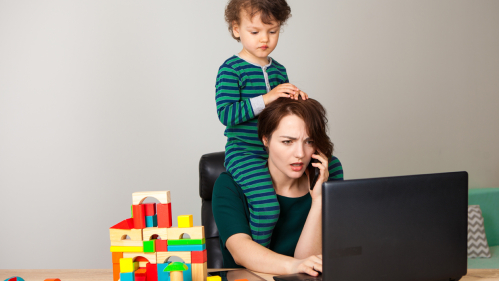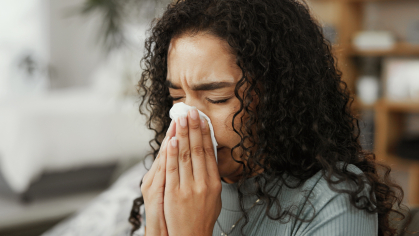Making Playtime Count as COVID-19 Shapes the Summer

When it comes to playing with your kids this summer, Rutgers-Newark psychology professor says focus on quality not quantity
Congratulations, working parents.
After juggling the roles of caregiver, teacher, short-order cook and remote employee for three months, you deserve to take a bow.
You also deserve a break. But as parents working from home this summer are learning, that’s not always an option.
With cancellations and coronavirus concerns keeping many children from attending camps, daycare, recreation activities and even playdates, parents able to work from home have had to pivot from being their little ones’ teacher to their playmate.
If that sounds daunting, Rutgers University-Newark associate professor of psychology Elizabeth Bonawitz says it doesn’t have to be. When it comes to playing with your kids, focus on quality not quantity.
“Four hours of quantity means nothing if you don’t have quality,” said Bonawitz, whose research centers on how children learn – including through play. “Get down on their level. Be silly and playful. Make eye contact. Let them guide the back-and-forth exchange.”
The benefits to these short play breaks are two-fold, she said: They create impactful learning opportunities for children and give their parents peace of mind when they need to shift their attention back to work for long stretches.
“If afterward you’re doing work for several hours and ignoring them on tablets, it’s OK,” said Bonawitz, who is also mother to a 9-year-old son and 7-year-old daughter. “The less you stress about it, the more you can focus on building a quality relationship with them in those moments of pure play.”
Devoting downtime to get goofy with your little ones is especially important this summer, said Bonawitz, after months of quarantining kept our youngest learners from playing with their peers, which can impact them both socially and academically. Remember those reading, writing and math worksheets you had to coax your child to complete this spring? Research shows your child will retain more valuable information through guided play than filling out worksheets.
“Declarative rote memorization is proven to be less productive. It makes it harder for that information to get encoded,” she said. “The child who has a choice learns better and remembers better. We think that play affords that because play is fun. It’s an emotionally exciting activity. It can be silly, elicit joy and can create positive experiences of awe.”
So she suggests following your child’s lead, keep the conversation flowing and maybe work in concepts they railed against during distance learning. Building a fort can prompt a discussion about problem solving and engineering. Making a pretend meal can hone math skills and incorporate information about proper nutrition. Putting on a singing puppet show can reinforce phonetics used to read and spell. It doesn’t need to be highbrow, she said, anything goes if it fosters learning through play.
“What kid that age doesn’t love potty humor?” said Bonawitz of pre-k, kindergarten and first graders. “You don’t have to always be pedagogical parent. You can be the silly sidekick to allow them to engage in conversations that are more playful. Play what rhymes with ‘poop’? Then point out how ‘poop’ sounds like ‘school,’ they both have the ‘oo’ sound.”
While she acknowledges that finding a work-parenting balance will be more challenging this summer, Bonawitz is also quick to remind caregivers that not everyone is riding out this storm in the same boat.
“I want other parents of privilege who are able to work from home and care for their children to understand that in the grand scheme of things, their kids are going to be OK,” Bonawitz said. “This is hard on everyone, to be sure, but there are people with so much less really struggling right now. There are parents who don’t have the luxury of worrying about whether they are playing enough with their children. There are those who don’t have the option to work from home and are faced with the constant weight of getting sick themselves and bringing an illness that can easily kill into the household.”
Based on the state’s recently released guidelines for a planned return to in-classroom education in September, social distancing rules will likely prevent elementary-aged children from engaging in freeform play during recess and group classroom activities. Enforcing those restrictions with our youngest students will present challenges, she said, because they do not possess the frontal lobe executive function skills to fully comprehend them.
“It’s going to be hard for them to understand why they can’t high-five their friends and move around,” she said, adding that the limited movement will also be difficult for some older students, especially those on the autism spectrum or with ADHD. “I’m concerned it could create a stressful environment, which isn’t conducive for teachers or kids learning.”
Bonawitz said it would be ideal if schools are able to incorporate more outdoor learning into the curriculum this fall to cut down on stationary desk time.
“The more kids can interact with the world and be more playfully engaged the better,” she said, while also recognizing there is already a lot of pressures on teachers, staff and administrators to figure out how to operate in this new “normal.” “Teachers don’t have the bandwidth to suddenly reinvent education. They want to make the best learning environments possible under these circumstances.”


